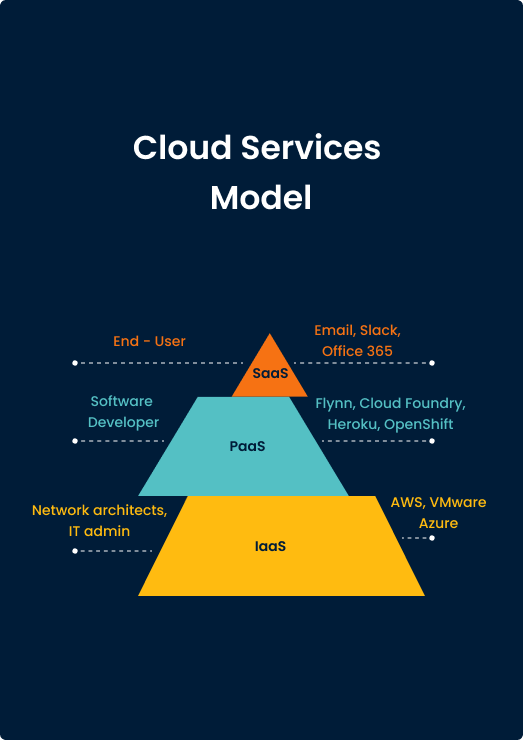Written by KRITIKA SINHA | MARKETING
Numerous organisations are capitalising on the potential advantages of cloud computing. Companies can save money, access cutting-edge technology, and implement scalable and flexible IT solutions through the use of cloud resources. The availability of cloud services allows small and medium-sized businesses to effectively compete with larger companies.
Choosing the right cloud services is crucial for maximising efficiency and ensuring the security and reliability of your operations. This blog provides a comprehensive overview of how to choose the right cloud services for your business.
What is Cloud Server Monitoring: Why It Matters
Transputec offers comprehensive Cloud Services Solutions tailored to your business needs. Our experts leverage cutting-edge technologies and best practices to ensure optimal performance, security, and cost-efficiency for your cloud infrastructure.
Our team of cloud experts leverages their extensive experience to assess your needs, recommend the ideal cloud solutions, and provide seamless migration and ongoing support.
Understanding Your Business Needs
Before diving into the selection process, it’s essential to assess your organisation’s specific requirements. Consider the following:
- Current IT infrastructure and limitations
- Business objectives and growth plans
- Budget constraints
- Compliance and security requirements
- Scalability needs
By clearly defining these aspects, you’ll be better equipped to choose the right cloud services that address your unique challenges and opportunities.
What is Cloud Services?
Cloud services refer to a wide range of services delivered over the Internet, providing businesses and individuals with scalable resources, storage, applications, and infrastructure. These services eliminate the need for physical hardware and allow users to access and manage their resources from anywhere with an internet connection.
Selecting the right cloud services is crucial for businesses looking to leverage the power of cloud computing. According to a report by Gartner, the global public cloud services market is projected to grow 17% in 2024, reaching $331.2 billion. This growth is driven by the increasing adoption of cloud services across industries, with IaaS and SaaS being the fastest-growing segments.
“At Transputec, we leverage cloud services to provide tailored, cutting-edge solutions that address your unique business needs, ensuring efficiency, security, and growth. Our Managed Cloud Services are designed to simplify migrations, rationalise cloud billing, optimise cloud usage, and provide you with a reliable and secure cloud infrastructure."
Types of Cloud Services
1. Infrastructure as a Service (IaaS)
IaaS provides virtualized computing resources over the internet. It is ideal for businesses that need flexibility and scalability. With IaaS, you can rent virtual machines, storage, and networks, paying only for what you use. This model suits businesses looking to avoid the expense and complexity of buying and managing their own physical servers.
2. Platform as a Service (PaaS)
PaaS offers hardware and software tools over the internet, primarily for application development. A PaaS provider hosts the hardware and software on its infrastructure. This service is beneficial for developers who want to create applications without worrying about the underlying infrastructure.
3. Software as a Service (SaaS)
SaaS delivers software applications over the internet on a subscription basis. It is a cost-effective solution for businesses that need ready-to-use software without the hassle of installations and maintenance. SaaS is ideal for CRM systems, email services, and office productivity tools.

How to Choose the Right Cloud Services?
1. Assess Your Business Needs
Understanding your specific business requirements is the first step in choosing the right cloud services. Consider what you need from the cloud:
- Scalability: Do you need resources that can scale up or down quickly?
- Cost Efficiency: Are you looking to reduce IT costs?
- Security: Do you need robust security measures for sensitive data?
- Accessibility: Do you require access to applications and data from anywhere?
2. Evaluate Different Cloud Models
There are several cloud models to choose from, each with its benefits:
- Public Cloud: Ideal for cost-effective, scalable solutions for general workloads.
- Private Cloud: Offers enhanced security and control, suitable for sensitive data and mission-critical applications.
- Hybrid Cloud: Combines public and private cloud benefits, providing flexibility and optimised resource management.
3. Consider Security and Compliance
Security should be a top priority when selecting cloud services:
- Data Encryption: Ensure the provider offers encryption for data at rest and in transit.
- Compliance: Check if the provider complies with industry-specific regulations like GDPR, HIPAA, or PCI-DSS.
- Security Protocols: Look for multi-factor authentication, intrusion detection systems, and regular security audits.
4. Analyse Performance and Reliability
Performance and reliability are crucial for maintaining smooth operations:
- Uptime Guarantees: Look for providers that offer high uptime guarantees (99.9% or higher).
- Low Latency: Ensure the provider can deliver low latency for your applications.
- Service Level Agreements (SLAs): Review the SLAs to understand the provider’s commitment to performance and reliability.
5. Understand Pricing Models
Different cloud providers offer various pricing models:
- Pay-as-You-Go: Pay only for the resources you use, which can be cost-effective for variable workloads.
- Subscription-Based: Fixed monthly or annual fees, suitable for predictable workloads.
- Hidden Costs: Be aware of potential hidden costs such as data transfer fees or premium support charges.
6. Seek Flexibility and Scalability
Ensure the cloud service can adapt to your changing business needs:
- Resource Scaling: The ability to easily scale resources up or down based on demand.
- Service Customisation: The option to customise services to fit your specific requirements.
- Future-Proofing: Choose a provider that continuously innovates and updates its services to stay ahead of technological advancements.
Would You like Assistance with Cloud Services?
Connect with us today for our free consultation!
Transputec: Cloud Services Support Company in London
Transputec leverages cloud services to address business needs in several key ways:
1. Scalability and Flexibility: Transputec designs cloud solutions that can seamlessly scale up or down based on business requirements, allowing infrastructure to adapt to fluctuating workloads and growing demands.
2. Cost-Efficiency: By migrating to the cloud with Transputec, businesses can significantly reduce IT infrastructure costs. The pay-as-you-go model allows companies to only pay for resources used.
3. Enhanced Security and Compliance: Our Cloud Security implements robust security measures like data encryption, access controls, and regular audits to protect sensitive data and ensure compliance with industry regulations.
4. Business Continuity: Our cloud migrations provide built-in disaster recovery and business continuity capabilities, with secure data backups and strategies to quickly recover from disruptions.
5. Innovation and Agility: Transputec assists in adopting cloud-native technologies like serverless computing, containers, and microservices to enable faster application development and deployment.
6. Comprehensive Cloud Services: We offer Infrastructure as a Service (IaaS), Platform as a Service (PaaS), and Software as a Service (SaaS) solutions using leading providers like Microsoft Azure and AWS.
7. Tailored Cloud Strategies: Transputec specialises in crafting customised cloud strategies and facilitating seamless migration to optimise cloud environments for enhanced performance.
8. Ongoing Support and Optimisation: Our expert team provides continuous monitoring, support, and optimisation to ensure clients derive maximum value from cloud investments.
9. 24/7 Cloud Management: We offer round-the-clock monitoring, regular patching, and optimisation of cloud environments to maintain security and efficiency.
Conclusion
Choosing the right cloud services can transform your business, driving growth, innovation, and efficiency. At Transputec, we bring expertise and personalised solutions to help you navigate the complexities of cloud adoption.
Contact us today to get in touch with an expert and start your journey towards a robust, scalable, and secure cloud infrastructure.

Seeking Optimal Performance and Security!
Schedule a call with our team of experts today.
FAQs
What are the benefits of cloud services for small businesses?
Cloud services offer small businesses cost savings, scalability, and access to advanced technologies without the need for significant upfront investments.
How do I ensure data security in the cloud?
Choose cloud providers with strong security measures, including encryption, regular security audits, and compliance with industry standards. Implement multi-factor authentication and educate your employees about cybersecurity best practices.
Can I use multiple cloud services from different providers?
Yes, many businesses adopt a multi-cloud strategy to leverage the strengths of different providers and avoid vendor lock-in. However, this requires careful management and integration.
What is the difference between public, private, and hybrid clouds?
Public clouds are shared environments provided by third-party vendors. Private clouds are dedicated to a single organisation, offering greater control and security. Hybrid clouds combine both public and private elements, providing flexibility and optimised workloads.
How do I migrate my existing systems to the cloud?
Migration involves planning, data transfer, application reconfiguration, and testing. Partnering with experienced cloud service providers like Transputec can simplify the process and ensure a smooth transition.







